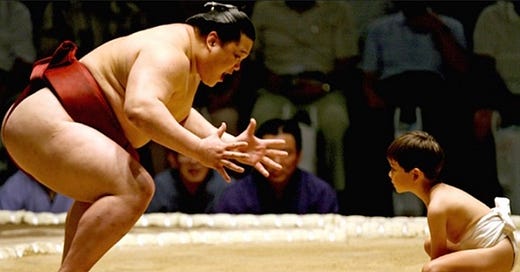(Read web version.)
Life can seem unfair and, indeed, often it is. How do people get ahead? The greatest rewards do not necessarily come to the hardest workers. Success comes to those who exploit their unfair advantages, competitive benefits which often are not worked for. The good news is that we all have a unique set. To illustrate this, for aspiring basketball players being tall is a significant advantage. Shorter people have the odds stacked against them.
Success is the result of both these unfair advantages and meritocratic factors. Meritocratic factors are typically considered as fair, resulting from dedication, focus, integrity and effort. They are open to everyone.
This post helps identify our unfair advantages which we can then build upon and exploit. I draw upon the MILES framework outlined in The Unfair Advantage book by Ash Ali and Hasan Kubba. The MILES framework considers unfair advantages in the categories: Money, Intelligence, Location, Education, Status plus Mindset (foundational).
Mindset
Regardless of our situation, if we do not have the right mindset then we will not succeed. Our mindset determines how we interpret and react to experiences.
Dr. Carol Dweck, Stanford University, suggests that people fall into two broad categories: Fixed Mindset and Growth Mindset. Those with a Fixed Mindset believe success is largely down to natural talents we have from birth. You either have a talent for something or you don’t. They see failure as a disaster and often blame others for it. This holds their development back. In contrast, those with a Growth Mindset believe success is about change, interaction, practice and learning from mistakes. Such individuals typically have a clear vision of the future they wish to create, are highly resourceful and grow through life long learning and adaptation.
Money
This includes cash and anything that could quickly be converted into cash, such as property and shares. Those born into wealthy families can try new ventures in the knowledge that they have a comfortable fall back option if things don’t work out. The money extends the runway (time until the cash runs out) for the venture to succeed. Having money, however, can have a downside. It often reduces incentives for individuals to push themselves. Also, it can lead to poor financial decisions, e.g. spending money without any reasonable prospect of making a return.
Intelligence
For the purpose of considering advantages, there are four types of intelligence: IQ (Intelligence Quotient), Book (capacity for theoretical understanding and learning from books), Street (Learnt through practical experience. Emotionally and Socially skilled.) and Creative (Connecting dots and coming up with solutions).
Before the age of 22, brothers Patrick and John Collison, founded Stripe which became a multi-billion dollar payment processing company. Patrick developed his own programming language before he was 16 and left school a year early to enrol at MIT. John finished school with the highest ever score on his Leaving Certificate (Irish A Levels) and was accepted into Harvard before taking his exams. While considerable hard work went into their success, intelligence represented a considerable unfair advantage for them.
Location
Those of us who are lucky enough to live in democratic, stable and wealthy countries have an unfair advantage over others who do not.
The two most important requirements for major success are: first, being in the right place at the right time and, second, doing something about it. - Ray Kroc, McDonalds pioneer.
Successful businesses tend to be geographically clustered, e.g. tech companies in Silicon Valley and London. The right location can be important to unlocking opportunities, making connections and serving customers.
Education
Education is the process of learning, both in school and beyond. Having a good education, however it is acquired, is a significant unfair advantage. There are three benefits to having a good education, including: knowledge (facts and techniques), network (students with similar backgrounds and aspirations) and signalling (show others that you have skills and talents).
Status
Fair or not, a doctor is perceived to have higher status than a nurse, a CEO higher than a junior employee, and a billionaire higher than someone on benefits. Shared beliefs and norms in a society reflect who we consider to have higher status. High status generally confers prestige, respect and influence. Status can come in the form of an association with an institution, e.g. Cambridge University or Google, or titles, e.g. Sir Richard Branson. Elon Musk’s worldwide status is such that any new business he started would gain visibility and be successful. Hence, status can be exploited as an unfair advantage.
Exploiting our unfair advantages
The audit of our unfair advantages is useful in narrowing down a vision for the future we wish to create by ensuring there is a sufficiently good alignment. In the context of mobile app developments, please refer to my earlier post How I generate app ideas.
Other resources
Developing a Growth Mindset by Matthew Syed
What’s Your Unfair Advantage? interview with Hasan Kubba
This post suggests we all have a set of unfair advantages and that those who succeed know how to exploit them. Next Sunday’s post will explain how I developed a website for Scarper, my free mobile app game.
Until next Sunday, think through your unfair advantages and how you can exploit them.
Have fun.
Phil…




